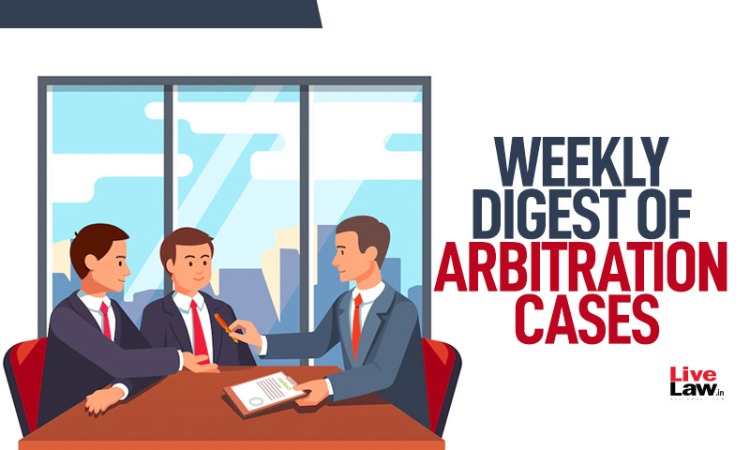Arbitration Cases Weekly Round-Up: 16 October To 22 October, 2022
Parina Katyal
24 Oct 2022 9:15 AM IST

Next Story
24 Oct 2022 9:15 AM IST
Delhi High Court: Rewriting Commercial Contractual Terms Is Fatal To An Arbitral Award: Delhi High Court Case Title: Calcom Cement India Ltd. versus Binod Kumar Bawri & Ors. The Delhi High Court has ruled that where the parties agree to enter into a mutual consultation in the future, for making amendments to an original agreement, the same would only constitute an "agreement...
